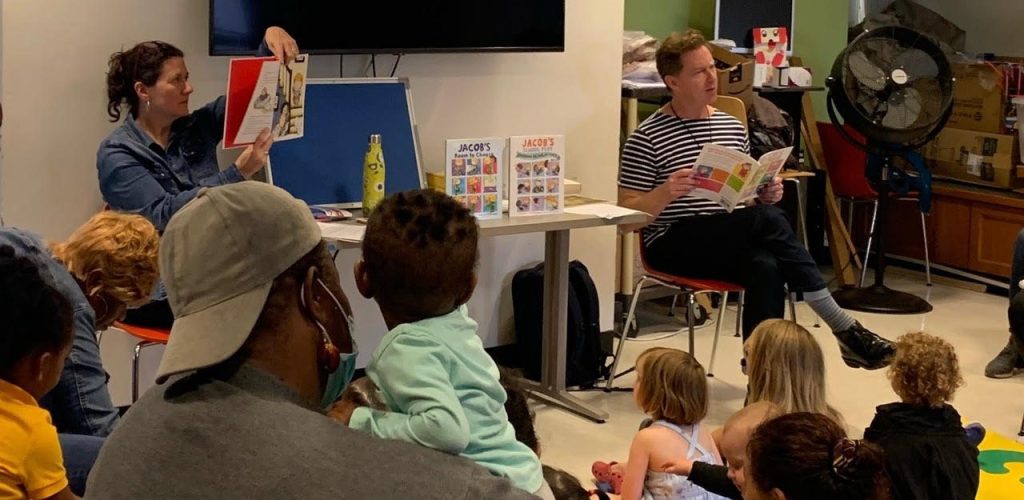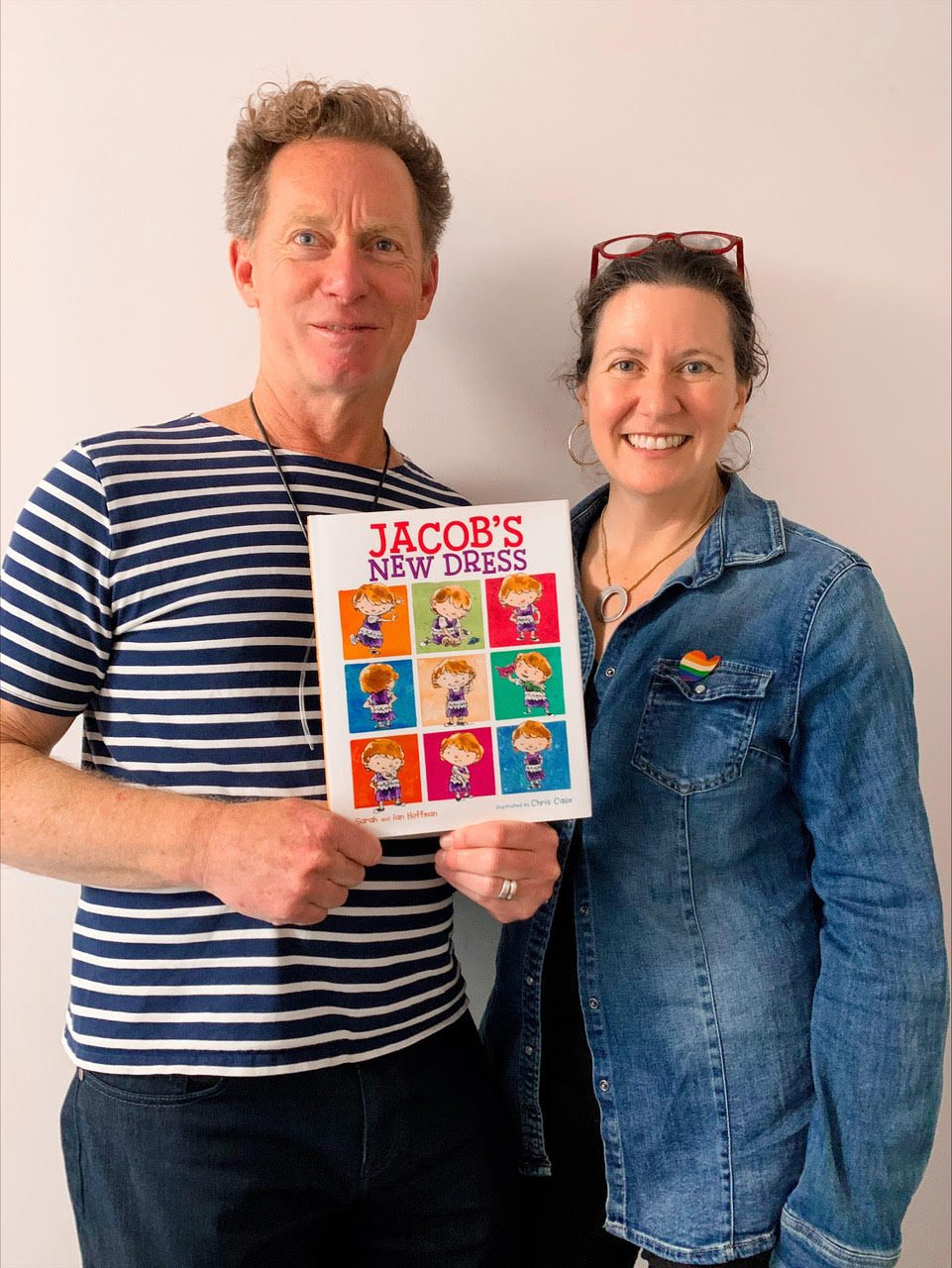
“I was sitting right here at this desk, you know, looking at the screen just like I am right now.”
Ian Hoffman’s ordinary day was disrupted when the last Google alert he ever wanted flashed across his screen. Jacob’s Room to Choose, a picture book he co-authored with his wife Sarah Hoffman, was cited in a US Supreme Court case.
In June 2025, Mahmoud v. Taylor ruled that parents and caregivers may remove their children from classroom lessons involving LGBTQ+-inclusive picture books on religious grounds. If parents didn’t approve, they could close the door on their child’s learning.
“Kids’ whole job is to learn things,” Ian says. “That’s what they’re supposed to be doing.” But when we remove children from their classrooms, we deprive them of opportunities to better understand the world, respect human differences, and stand up for others.
Jacob’s Room to Choose is one of four books in Ian and Sarah Hoffman’s Jacob series, depicting a young boy who wears feminine clothing and has long hair. The books are powerful resources to lead intentional conversations with kids about identity, difference, and standing up to mistreatment.
Jacob’s Room to Choose follows Jacob and Sophie–two children who can’t always safely use the school bathroom because they don’t fit the gender expectations of others.
When Jacob tries to use the boys’ bathroom, other kids chase him out, thinking he is a girl. The same thing happens to his friend, Sophie, when she tries to use the girls’ bathroom. In the book, Jacob’s and Sophie’s teacher helps them safely access the bathrooms and teaches an impromptu classroom lesson on gender stereotypes. The students work together to create a more welcoming school environment where everyone can use the bathroom right for them.
Jacob may be a fictional character, but the challenges he faces are real. Ian and Sarah Hoffman’s son, Sam, is the inspiration behind Jacob. Sam wore clothing perceived as feminine and was often antagonized by others who believed he should abide by their expectations for what boys “should” look like. As parents, Ian and Sarah worked hard to affirm Sam’s identity and protect him from harm.
“[Mahmoud v. Taylor] sends a message to the kids represented in those books that there’s something wrong or shameful about them or their families–something so bad their classmates can’t even look at it,” Ian says. Jacob’s Room to Choose is more than a story Ian and Sarah wrote. It’s their real-life experience–one the Supreme Court decided is optional for learning.
Ian and Sarah’s books are designed to guide age-appropriate conversations with kids about gender expression, gender roles, and gender creativity. They aim to portray the realities of a child living authentically, to help prepare kids and their families for self-advocacy and respecting others.

“Life can be really difficult for gender non conforming kids, and we’ve learned through our own experience with Sam that kids are pretty tolerant of difference. If they’re taught to be tolerant, education makes a huge difference in terms of what kids will or won’t accept.”
Years before Jacob’s Room to Choose was cited by the Supreme Court, Ian and Sarah saw the impact of inclusive teaching in their own child’s classroom. Sam’s kindergarten teacher, Ms. Reeves, took opportunities in everyday moments to disrupt gender-based biases. She gently interrupted student comments about what boys and girls “do or don’t do,” leading intentional conversations about gender roles and expression. Like AmazeWorks, she understood the importance of belonging for every student, including Sam.
Ms. Reeves’ efforts paid off. These intentional conversations shifted classroom culture and improved how Sam was treated by his peers.
To see the difference between a classroom that had open conversations about gender expression and one that didn’t, Sam simply had to walk across the hall. Ian and Sarah noticed that kids in classrooms without these conversations did not respect Sam. “When kids were educated about gender diversity, they accepted Sam. When they weren’t, they rejected him. Education is powerful, and it works,” Ian says. “Our book is sort of a small piece of a much larger effort to build a more empathetic, compassionate culture.”
Through observing their son’s school experiences, Ian and Sarah saw firsthand the power of story to shift culture. Inclusive teaching, honest conversations, and storytelling changed their son’s everyday life. Books can spark that same change and improve student experiences everywhere.

Book bans do the opposite. They prevent children from learning essential lessons, like treating others with respect and standing up to unfairness. Opting children out of stories strips them of those opportunities.
Even after the ruling, Ian and Sarah continue to write stories that all children deserve to read. They released Jacob’s Missing Book in September 2025, exploring the impact of book censorship from a child’s perspective.
At AmazeWorks, we believe one of the best ways to resist harmful book censorship is by meaningfully engaging with the material of banned books. Don’t just read them–let them linger. Ask questions. Discuss the content. Allow stories to change you.
Book censorship keeps us stuck in time. Stories expand our worlds and create change that benefits us all.